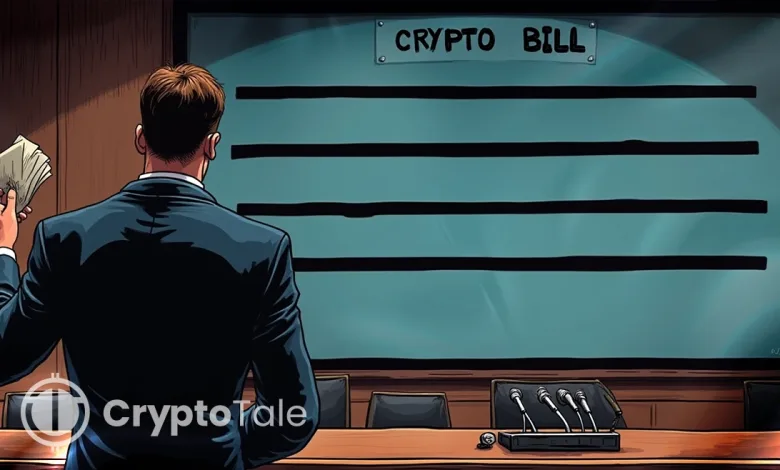Senate Democrats Reveal New Crypto Market Structure Plan

- Senate Democrats propose a seven-part plan to regulate crypto and strengthen U.S. markets.
- The bill seeks bipartisan support and combines with House measures for wider adoption.
- Clear rules on oversight could boost innovation and expand leadership in digital assets.
Twelve Senate Democrats introduced a detailed framework Tuesday for crypto market structure legislation, a strong signal the minority party intends to work with Republicans on comprehensive digital asset reform. The senators said the nearly $4 trillion global crypto market and millions of American users are too large to remain in regulatory uncertainty. The framework, they explained, aims to establish strong rules, promote responsible innovation, and create a level playing field.
Framework and Core Provisions
The Democratic group includes Senators Ruben Gallego of Arizona, Mark Warner of Virginia, Kirsten Gillibrand of New York, Cory Booker of New Jersey, Catherine Cortez Masto of Nevada, Ben Ray Luján of New Mexico, John Hickenlooper of Colorado, Raphael Warnock of Georgia, Adam Schiff of California, Andy Kim of New Jersey, Lisa Blunt Rochester of Delaware, and Angela Alsobrooks of Maryland.
Their seven-part framework outlines three major priorities. First, it would strengthen the regulation of U.S. digital asset markets. Second, it would safeguard against corruption and illicit finance. Third, it would bar federal officials and their families from profiting off cryptocurrencies while in office. A full section addresses concerns about preventing President Donald Trump from financially benefiting from his ongoing crypto ventures.
The senators said in their joint statement, “Today, we’re releasing a framework for a market structure bill that would regulate digital asset markets in the U.S., ensure responsible innovation, and create a safe and level playing field for all market participants.” The framework is expected to form the roadmap for negotiations with Republicans on how to move digital asset legislation forward.
Political Context and Legislative Path
Congress has already advanced key bills this year. The House passed the CLARITY Act in July to determine whether digital assets fall under the Securities and Exchange Commission or the Commodity Futures Trading Commission. The GENIUS Act, signed into law the same month, created strict oversight for stablecoins. It requires full reserves, independent audits, and a mix of state and federal supervision.
Meanwhile, Senate Republicans have prepared their own measure: the Responsible Financial Innovation Act (RFIA). This 182-page proposal narrows the SEC’s discretion, introduces “ancillary asset” categories, and shifts authority toward the CFTC. According to CNBC, the updated draft prevents securities from being classified as commodities when tokenized into crypto. Democratic senators argue this approach risks weakening investor protections, straining an underfunded CFTC, and raising the chance of systemic financial losses.
Most of the Republicans support RFIA. Yet to reach President Trump’s desk, the final legislation must combine with the House bill and gain support from at least seven Senate Democrats. That dynamic underscores the importance of this new Democratic framework as a potential bridge in shaping bipartisan negotiations.
Related: Senate Crypto Bill Ensures Tokenized Stocks Remain Securities
Proponents say the Senate Democrats’ framework, together with the House-passed CLARITY Act, could deliver the regulatory clarity demanded by U.S. markets. Clearer rules on regulatory authority and investor protection could unlock broader institutional participation. They may also provide the certainty required for firms to accelerate blockchain innovation domestically.
Digital-asset firms, fintech companies, major banks, and regulators are all watching closely. Lawmakers feel the framework holds the potential for “robust, fruitful” bipartisan discussions, though niggling political issues remain. How fast Congress turns this into legislation depends entirely on how well Congress balances investor protection with market accuracy, innovation, and political optics.




